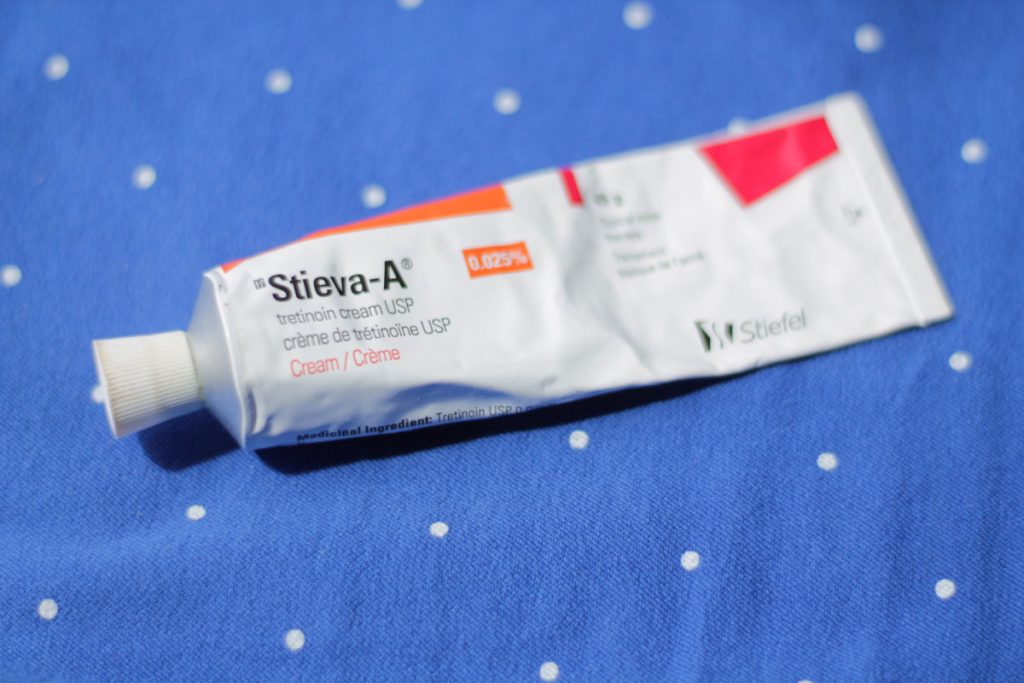
When you use tretinoin, your skin’s cells turn over faster. This keeps blemish cells under control and prevents future breakouts.
It also helps smooth uneven skin tone by dispersing melanin granules and reduces dark spots caused by sun damage, pregnancy or birth control pills. And it boosts collagen to firm up sagging skin.
Acne
Tretinoin helps reduce acne by unclogging pores, reducing oil production and preventing dead skin from building up. It also lightens dark spots and rough skin on the face caused by sun damage. It does not fully or permanently erase fine lines and wrinkles.
Prescription tretinoin is one of the most difficult skincare products to get right. It is easy to overdo it, either in quantity (applying too much) or frequency of application. The key is to titrate and listen to your skin. Start with a small amount once a week and increase as tolerated.
Tretinoin can irritate the skin, especially in the first few weeks of use as it clears comedones and removes dead skin cells. It is important to use a gentle cleanser and moisturizer while using this medication. It is also a good idea to avoid sun exposure and use a broad spectrum sunscreen. It may take up to 12 weeks before you notice an improvement in your acne.
Fine lines and wrinkles
Fine lines and wrinkles develop from repeated contractions of facial muscles. Topical retinoids (including tretinoin) can help reduce their appearance by stimulating skin cell production, increasing collagen, and reducing the buildup of dead cells. Retinoids can also fade actinic keratosis spots, even skin tone and texture, & make the skin appear firmer.
The key to success with tretinoin is starting low and going slow. Too much product can irritate the skin. Your dermatologist will determine the right concentration for you & may recommend a gradual ramp up. You should use only a pea-sized amount of the medication to see an effect.
While tretinoin is great for fine lines and dark spots from sun damage, it cannot erase deep wrinkles. It can, however, significantly improve the appearance of these problems as part of a comprehensive skin care program that includes protecting the skin from the sun. The best way to prevent further sun damage is daily sunscreen use.
Dark spots and age spots
Tretinoin lightens dark spots and age spots that may have been caused by sun damage. It also encourages the growth of new skin cells that improve skin tone and texture. It can also be used in conjunction with other treatment options like chemical peels or laser resurfacing to maximize results and minimize downtime.
In addition to its anti-aging benefits, tretinoin speeds up skin cell turnover and exfoliation, which can help eliminate hyperpigmentation. It can also enhance the penetration of other skin care ingredients, such as Hydroquinone, to maximize their effectiveness.
Patients should use tretinoin carefully to avoid irritation and other side effects. Be sure to wash your hands and apply only a pea-sized amount of medication. It is important to follow your doctor’s instructions and to wear sunscreen daily, especially if you are using tretinoin or other prescription treatments. You should expect to see some results after six to eight weeks, but consistency is key.
Sun damage
Over time, the sun’s rays damage the microscopic skin cells in your face. This process is called photoaging and can lead to wrinkles, fine lines, brown spots and uneven pigmentation. Topical tretinoin has been shown to partly reverse the sun’s damaging effects on the skin.
Tretinoin increases cell turnover and reduces the appearance of fine lines, wrinkles and dark spots. It also helps with follicular plugging (when dead skin, sebum or keratin block pores) by increasing cell growth and exfoliation.
Tretinoin is a powerful skincare ingredient with more than 50 years of research behind it. Dear Brightly makes it easy to get a derm-grade prescription online, without the cost and hassle of an in-person consultation. We’ll work with your doctor to prescribe the right dose and delivery method, then ship it directly to you. Follow your tretinoin prescription with a high SPF sunscreen every day and moisturize regularly to avoid dryness and peeling. Talk to your doctor about other medications you’re taking or supplements you take before starting tretinoin.